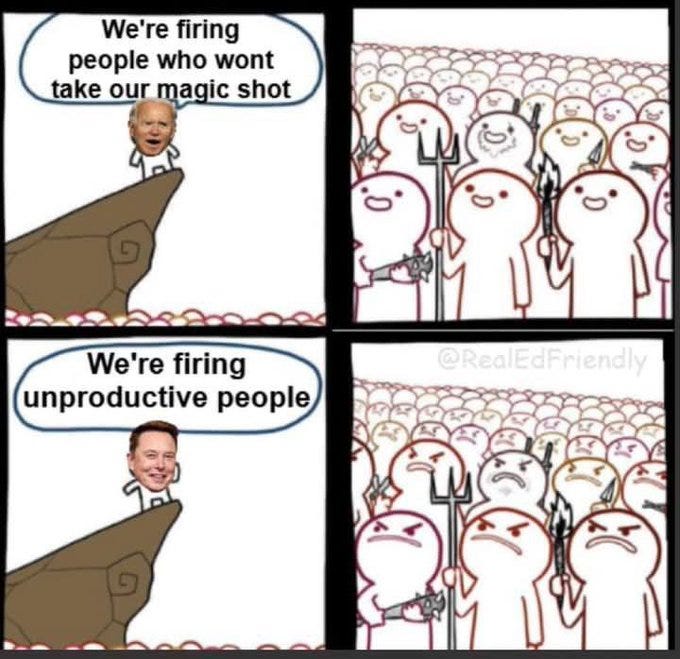Since the American Revolution, US troops have dealt death all over the globe. From Germany, to Japan, “From the Halls of Montezuma, To the shores of Tripoli,” to quote the Marine Corps Hymn.
Hell, we even fought ourselves in our backyards.
But Mexico seems to get a pass. Of course, between 1846 and 1848, we had the Mexican-American War and other conflicts, such as the Texas Revolution in 1835 and the Texan Santa Fe Expedition in 1841.
Since then, tensions between the Mexican and American governments have remained limited to diplomatic or cold contentions.
While Mexico has traditionally cooperated with the US in drug war efforts with joint raids, extraditions, and crop burns, for example, relations have been inconsistent with seemingly uncontrollable corrupción.
Even though thousands of Americans have been killed by drugs and criminals flowing from the southern border, most people would not support hot or cold military or government enforcement on Mexican soil.
Most people wouldn’t even support a wall or border patrol for a long time, at least not publicly.
Why is Mexico exempt from the consequences of a hot war with the US when they’re responsible for so many American lives? Should we send in the troops, or continue building relationships with the Mexican government?
Argument: No More War!

Mexico doesn’t get a “free pass.” It’s called cooler heads prevailing.
The people of Mexico, under no circumstances will accept interventions, interference or any other act from abroad that is harmful to the integrity, independence and sovereignty of the nation… -Mexican President Claudia Sheinbaum
Main Points: Anti-Intervention
Sovereignty Violations
Cartel Retaliation
Supply vs. Demand
Mexiraqinam’istan
Adversarial Alliances
Point #1: Sovereignty Violations
While Mexico receives funding and support from the United States, it isn’t afraid to defend its sovereignty, as it shouldn’t.
For example, when former Mexican Defense Minister General Salvador Cienfuegos Zepeda was arrested on conspiracy to protect drug traffickers in Los Angeles in 2020, Mexican officials demanded his release or they would refuse to cooperate with drug war efforts in the future.
Violating that sovereignty with military or state intervention with Mexico could lead to long-term obstacles for the US in the form of increased drug flow across the border or economic challenges.
Point #2: Cartel Retaliation
Cartels have more than weed, pick-up trucks, and AKs these days.
Last year, the Mexican army reported some of their personnel have been killed by bomb-dropping drones operated by cartels, similar to what we’ve seen in the Russian-Ukrainian War, and authorities have confiscated hundreds of homemade tanks.
Cartels are also known to possess and use military grade weapons such as belt fed machine guns, rocket launchers, and grenades.
In 2010 alone, Juarez saw over 3,000 murders during peacetime. Imagine the possibilities between open conflict between the US and Mexico.
Point #3: Supply Vs. Demand
Mexico sells a ton of drugs in the US because Americans buy a ton of drugs. You don’t create a $100 billion drug market without a strong demand.
The US government should focus more on fixing culture and border security, otherwise drug users will find supplies elsewhere.
Point #4: Mexiraqinam’istan
Do we really want to kick off the next Iraq, Vietnam, or Afghanistan?
Many people who voted for Trump did so because they are tired of war. Would the American public support opening another money pit so close to home?
Given the rampant cartel operations all over Mexico and beyond, the battlefield is a ready-made insurgent haven that could outpace Afghanistan.
Point #5: Adverserial Alliances
Mexico could strengthen alliances between American adversaries such as China and Russia with an open US conflict.
Reinforced ties between these nations could manifest in financial or material support for anti-American efforts, and economic agreements that could damage the US in the short and long term.
Rebuttal: Give ‘em Hell!

We’re taking war-like casualties because of Mexico’s inability or lack of will to control their cartels. It’s time we respond in kind.
You have killed more Americans than every terrorist organization in the world combined. You are now a terrorist organization. So, word out to anybody that assists them, anybody that sells their drugs on a street, anybody assists these cartels in any way, you are helping a terrorist organization. -Tom Holman, US Border Czar
Main Points: Pro-Intervention
Your Safety
Can’t or Won’t?
It’s the Economy, Stupid
International Deterrence
It Worked Before
Point #1: Your Safety
The number of Americans dying from fentanyl, much of it flowing from Mexico, is staggering.
According to the CDC, 107,543 Americans died from fentanyl in 2023 alone.
But its not just cartels, throughout the last administration, countless murderers, rapists, and other criminals spilled into the US, killing prolific victims such as Laken Riley, Jocelyn Nungaray, and Lizbeth Medina.
Point #2: Can’t or Won’t?
Between drug war efforts and international crime in recent decades, it’s clear either Mexico does not have the means to control the cartels or doesn’t wish to.
The US, however, has shown tremendous effort to hold drug lords responsible by assisting with the arrest and imprisonment of Sinaloa Cartel leader, Joaquín “El Chapo” Guzmán, for example.
Point #3: It’s The Economy, Stupid
Violence and death aside, the multi-billion dollar drug trade cripples legitimate commerce and funds criminals.
Military or state intervention could knock out key cartel members and strengthen legal business in the US.
Point #4: International Deterrence
Military or state department intervention would set the example to the international community that the US has the means and resolve to exert military force on traditionally “safe” nations.
Canada’s butt would pucker as they too would stand no chance against US expansion should we seek it, which could improve diplomatic relations.
Point #5: It Worked Before
US intervention in Colombia in the 1990s reduced cocaine production by 70% and reduced capabilities in criminal entities like the Revolutionary Armed Forces of Colombia–People’s Army (FARC).
Given the increased technology we have now, between drones and cyber means, the US could strike multiple blows against drug and weapons dealers, and other criminals if we put forth the effort.
What’s the CIA Good For Anyway?

Like many people, another war is the last thing I want to see. Although whatever the US has been doing about the Mexican crime problem, isn’t working.
But who said military or State Department intervention in Mexico must involve drone strikes or boots on the ground?
In the past few weeks, we’ve heard Mike Benz, the former US State Department official and current Foundation for Freedom Online director, make the podcast rounds explaining the USAID situation and its surrounding fallout.
If you believe him, and there’s no reason why you shouldn’t, the CIA has been influencing governments and other organizations around the world for decades, by media manipulation, funding Cuban rap music, or supporting trans polka dancing in Serbia.
Yet we can’t stop guns, drugs, and weapons coming across the southern border.
But why should we expect the CIA to do anything in the American public's favor when they are widely believed to have sold crack to the black community to fuel the Contras in Nicaragua? Allegedly.
I always thought that sounded out there, but my post 2020 eyes exercise more discretion.
While it’s generally accepted that the CIA conducted operations in Mexico during the 1980s to spy on the Russians and assisted the DEA in drug war efforts, it doesn’t seem likely the US government has traditionally done its best to keep the American people safe from Mexican threats.
Especially between 2021 and 2025.
Yet while many voters didn’t vote for more war, we did vote to put a stop to the constant death invading our borders.
But maybe our intelligence efforts will turn a new leaf.
In recent weeks, CIA drones, by Mexico’s request, have been operating in country, tasked with providing the Mexican government with intel on the cartels. The US also reportedly deployed manned intelligence collecting aircraft such as Navy P-8 Poseidon planes, U-2 spy planes and RC-135 Rivet Joint aircraft.
In a show of good faith, the Mexican government recently handed over 29 Mexican drug traffickers to the US Justice Department, one being Rafael Caro Quintero, who officials say murdered and tortured DEA Special Agent Enrique Camarena and his pilot Alfredo Zavala Avelar in 1985.
Another extraditee is Martin Sotelo, who was wanted for his alleged participation in the 2022 murder of North Carolina Deputy Sheriff Ned Byrd.
They say war is never the answer, which we all know isn’t true. But perhaps the idea applies here, and maybe we can find a happy medium in that President Trump’s pen will prove mightier than his sword.
To be prepared for war is one of the most effective means of preserving peace. -George Washington
Meme of the Week

Brand of the Week: Kenai Fish

At Kenai Fish, a family-owned and operated fishery, they like to do things the old-fashioned way. Men go out in boats, catch WILD fish, then sell it to you! Crazy!
Assuming you aren’t in the area, head to their online store for wild-caught salmon, halibut, Alaskan King Crab, and more!
American of the Week: DEA Special Agent Enrique "Kiki" Camarena

Enrique "Kiki" Camarena Salazar was a Drug Enforcement Administration (DEA) agent who was kidnapped and murdered in Guadalajara, Mexico, on February 9, 1985, by members of the Guadalajara Cartel, allegedly on orders from Rafael Caro Quintero, a Mexican drug lord.
Kiki, born in Mexicali, Mexico, and a US citizen, had been working undercover in Mexico for over four years investigating drug traffickers. He was abducted while on his way to meet his wife for lunch and was brutally tortured before his death.
Kiki left behind his wife Mika and three sons, Enrique, Erik, and Daniel. Remember Kiki today.




